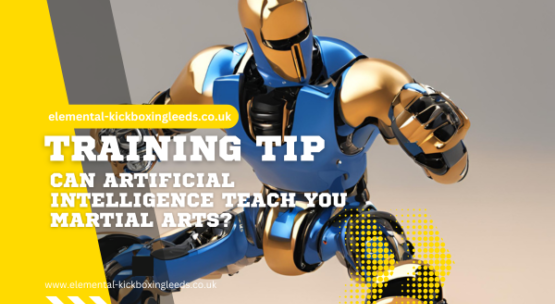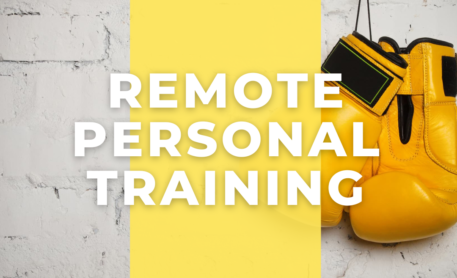
Training Offered
- Join Us Today
- Lead Instructors
- Senior Instructors
- Assistant Instructors
- Medical Doctor
- Club Attire
- Ladies Kickboxing Leeds
- Practical Self Defence Leeds
- Gradings Leeds 2025
- Gradings Black Belt Leeds
- Contact Sparring
- Combat Academy
- Champions Wall
- Private Coaching Leeds
- Remote Personal Training Leeds
- Online Training Leeds
- Gym Access
- Gym Space Hire Leeds
- Treatment & Therapy Rooms To Hire
- Faqs
Latest Posts
10
Aug
Can Artificial Intelligence Teach You Martial Arts?
By: Elemental Kickboxing Leeds ArtificialIntelligence, FutureOfFitness, VirtualInstructor

Can Artificial Intelligence Teach You Martial Arts?
In recent years, artificial intelligence (AI) has made significant strides in various fields, from healthcare to finance to entertainment. One intriguing area of exploration is the potential for AI to teach martial arts. This concept might seem far-fetched, but with advancements in machine learning, computer vision, and interactive technologies, the idea of AI as a martial arts instructor is becoming increasingly plausible. In this blog, we'll delve into how AI can contribute to martial arts training and the benefits and limitations of this innovative approach.
The Role of AI in Martial Arts Training
AI can be integrated into martial arts training in several ways:
Virtual Instructors: AI-powered virtual instructors can provide step-by-step tutorials on various techniques, from basic punches and kicks to advanced grappling manoeuvres. These virtual coaches can be accessed via apps or VR platforms, offering interactive and engaging lessons.
Motion Analysis: Using computer vision and motion analysis, AI can analyse a practitioner's movements in real-time. This technology can identify mistakes in form, suggest corrections, and provide feedback to help improve technique and prevent injuries.
Personalised Training Programs: AI can create personalised training programs based on an individual's skill level, goals, and progress. By continuously adapting to the practitioner's performance, AI ensures that the training remains challenging and effective.
Performance Tracking: AI systems can track various metrics such as speed, power, and accuracy of strikes. This data can be used to monitor progress, set goals, and maintain motivation.
Simulation and Strategy: AI can simulate sparring scenarios, allowing practitioners to practice their techniques and strategies against a virtual opponent. This can help in developing reflexes, decision-making skills, and adaptability.
Benefits of AI in Martial Arts Training
Accessibility: AI makes martial arts training more accessible to people who may not have access to a traditional dojo or a personal trainer. This can democratise martial arts education, allowing more individuals to benefit from it.
Convenience: Training with AI can be done anytime and anywhere, offering flexibility for those with busy schedules. This convenience can help maintain a consistent training routine.
Cost-Effective: AI-based training tools can be more affordable than regular classes with a human instructor. This can lower the barrier to entry for many aspiring martial artists.
Consistent Feedback: Unlike human instructors who may vary in their feedback and availability, AI can provide consistent, objective feedback and remain accessible 24/7.
Limitations and Challenges
Lack of Personal Touch: Martial arts are not just about physical techniques but also about philosophy, discipline, and human connection. AI cannot replicate the mentorship, camaraderie, and emotional support provided by a human instructor.
Complexity of Techniques: Some advanced techniques and subtle nuances may be difficult for AI to teach effectively. The tactile feedback and adjustments that come from a human instructor's experience are hard to replace.
Safety Concerns: Practicing martial arts involves physical contact and risk of injury. AI cannot intervene in real-time to prevent injuries during sparring or provide immediate assistance in case of an accident.
Motivation and Discipline: While AI can track performance and suggest improvements, it may not be as effective in motivating students or instilling discipline and values that are integral to martial arts training.
AI has the potential to revolutionise martial arts training by making it more accessible, convenient, and personalised. It can complement traditional training methods, providing valuable tools and resources for practitioners at all levels. However, it is unlikely to replace the human elements that are fundamental to martial arts. The future of martial arts training may very well involve a blend of AI technology and traditional instruction, leveraging the strengths of both to create a more comprehensive and effective training experience.
As we continue to explore the possibilities, it's exciting to imagine the innovations that lie ahead. Whether you're a beginner looking to get started or an experienced practitioner seeking to enhance your skills, AI could become a valuable ally in your martial arts journey.

A Guide to Pre & Post Workout Nutrition
Maximise Your Kickboxing Workout: A Guide to Pre & Post Workout Nutrition




